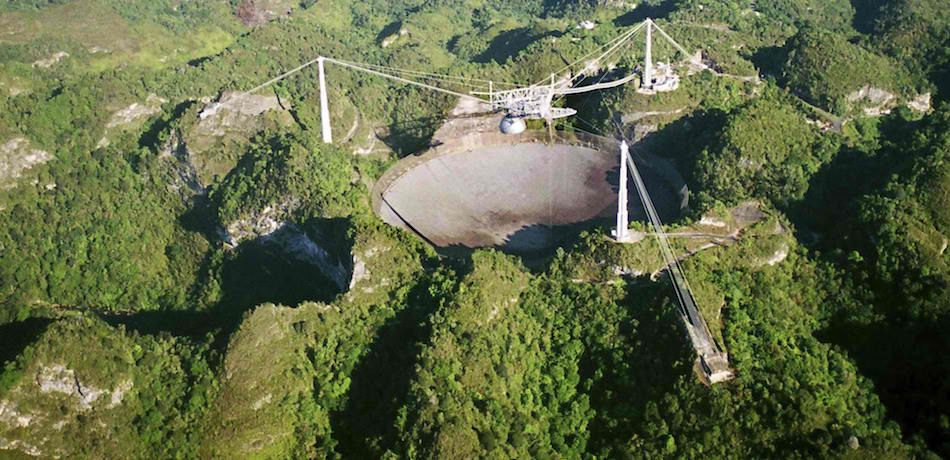Despite being battered by Hurricane Maria, and facing a decrease in funding from the U.S. government, the Arecibo radio telescope in Puerto Rico is still going strong, and is now up and running again, following a series of repairs. And with the near-Earth asteroid 3200 Phaethon having just flown by our planet, Arecibo has just sent back images that are supposed to represent the highest-resolution photos of the asteroid, which help reveal some important details about the object.
According to a press release from NASA, the radar images were taken by the Arecibo Observatory Planet Radar last Saturday, December 16, and generated the day after, as asteroid Phaethon 3200 had its close encounter with Earth. At the time of its closest approach, the object was only 1.1 million miles away from Earth, or less than five times the distance separating our planet from the moon. The images have resolutions estimated at about 250 feet per pixel, making them the best-quality photos of the asteroid that are currently available, Phys.org added.
Based on Arecibo’s radar images, scientists believe that 3200 Phaethon is substantially larger than once estimated, with a diameter of approximately 3.6 miles, or 0.6 miles larger than what previous studies had suggested. That also makes Phaethon the second largest near-Earth object classified as a “potentially hazardous asteroid,” or a comparatively large asteroid that orbits much closer to Earth than most others do. The images also suggest Phaethon has a spheroidal shape, with a number of peculiar physical features that scientists are still trying to understand in full. These features include a concave area believed to be several hundred meters wide, and a dark, crater-like area located near one of its poles.
